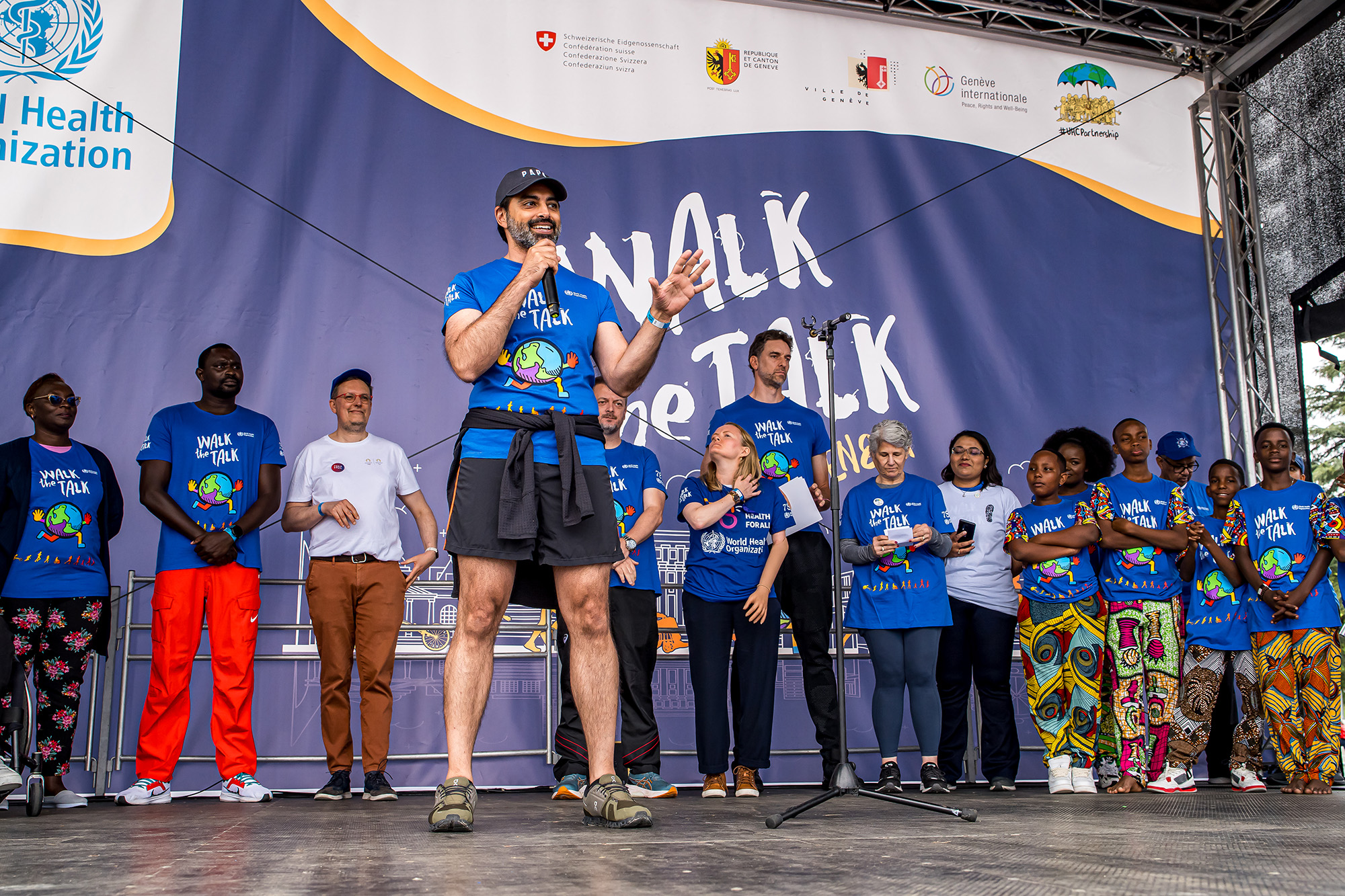Five Thoughts on Mental Health Awareness Month

Anil Soni speaking at Walk the Walk. Credit: WHO / Edouard Hanotte
By Anil Soni, CEO, WHO Foundation.
I’ve been loving many of the posts shared this Mental Health Awareness Month. From my perspective – as an employer, team-member, health advocate, and family member – how we can improve our mental health in the workplace is a subject that doesn’t get stale. Here’s my take.
1) Creating a culture for good mental health is intentional
It’s not always comfortable. It may involve looking closely at the organizational culture and checking in on your organizational values. At the WHO Foundation, we recently invited staff members to look at the way we work with one another, and also to appraise whether we were staying true to our values.
As a result of the culture review, our values (Equity, Honesty, Impact, Innovation, Service, Joy) stayed the same. The way in which we defined the values changed to reflect how staff members felt we should act towards one another and with external stakeholders. It was valuable work that brought teams together in a non-hierarchical environment with a common goal: to improve the way in which we work and also how we experience our work.
2) Stigma and shame is still a big factor
We shouldn’t forget how much stigma and shame still exists around seeking help for mental health issues.
I was reminded of this fact in this short film, featuring the organization Sangath India, made by the BBC StoryWorks for the Healthier Together series. In it, a woman named Hina Mobar, who is a health communications coordinator for Sangath, explains how she would have been fired by other employers for revealing her mental health diagnosis.
At the WHO Foundation we want to contribute to a world in which this no longer happens.
Side note: At the WHO Foundation, we worked with BBC StoryWorks in the development stages of the project, advising on public-private health initiatives such as this one, which was made possible thanks to funding from the Maybelline New York Braver Together initiative.
3) Take the time to use workplace tools on offer
If no initiatives exist, think about setting them up. At the WHO Foundation, we’ve been lucky to receive useful training and advice from one of our partners Hintsa Performance, a leading evidence-based coaching company, helping top athletes and business professionals achieve sustainable high performance. We will be rolling out more initiatives across the year, including encouraging staff to make use of the Hintsa services on offer.
4) Encourage physical activity among team members
Even something as simple as taking a lunchtime walk, and encouraging others to do the same, is a win for our physical and mental health.
In Geneva, this Sunday (May 27th), I will join colleagues from the Foundation and from World Health Organization (WHO) to Walk the Talk to raise awareness of the importance of physical activity to health, including mental health.
Leading by example matters.
5) There’s two sides to the workplace coin
Use your influence as managers and co-workers wisely. WHO’s research on mental health concludes that the workplace can play a positive role in creating a sense of achievement, confidence and job satisfaction.
But an unhealthy work environment can also create new mental health problems and aggravate existing issues such as anxiety and depression.
Remember that promoting good mental health involves having difficult conversations with empathy both in the workplace, and in your personal life.
I wish you kindness and courage.
This article was first published by Anil Soni on LinkedIn on May 24, 2024.



